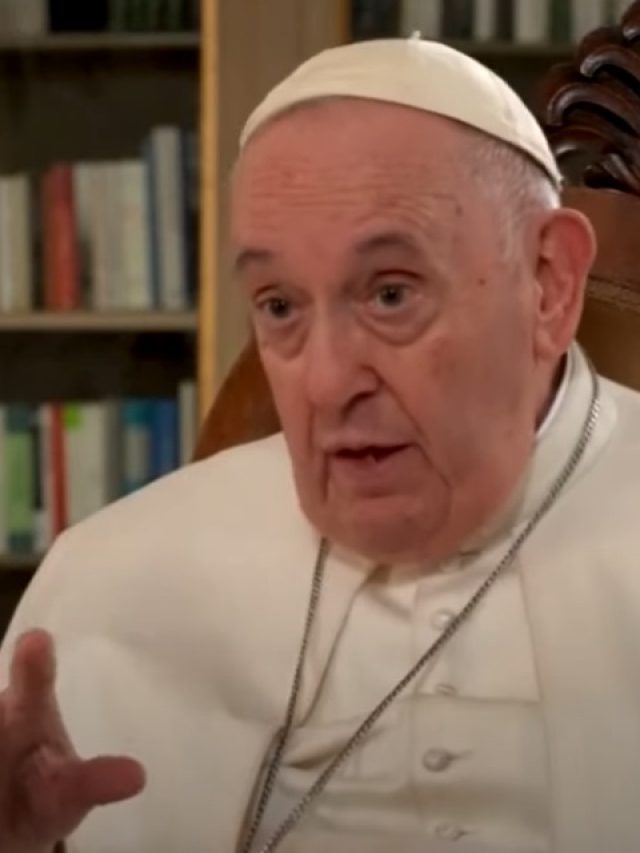There is something uniquely inspiring about the figure of Pope Francis, a man who has captured the hearts of millions across the globe. As the leader of the Catholic Church, he embodies a message of compassion, humility, and inclusivity that resonates with people of all faiths and backgrounds. Many individuals find themselves drawn to his teachings and wish to express their admiration or seek guidance directly from him. This article explores how you can send a letter to Pope Francis and provides practical tips for potentially receiving a response.
Writing to Pope Francis might seem like an intimidating task, but it's a meaningful way to connect with one of the most influential figures in the world today. Whether you're expressing gratitude, sharing your personal story, or seeking spiritual advice, sending a letter can be a deeply rewarding experience. Below, we delve into the details of mailing a letter to the Vatican, including the correct postal address and considerations that could enhance your chances of getting a reply.
Understanding how to properly address correspondence to Pope Francis involves more than just knowing the right mailing address. It also requires an appreciation of protocol and etiquette when communicating with such a revered spiritual leader. By following some simple guidelines, anyone can craft a respectful and impactful letter that stands out among the many received by the Vatican each day.
Connecting With The Holy Father Through Letters
Sending a letter to Pope Francis is not only possible but encouraged as a means of personal connection. Many believers feel compelled to share their thoughts or requests directly with him. To ensure your message reaches its intended recipient, use the official Vatican mailing address: His Holiness Pope Francis PP, Via del Pellegrino, 00120 Città del Vaticano. This address directs mail specifically to the Pope through the Secretariat of State at the Vatican.
When writing your letter, consider using formal language appropriate for addressing a high-ranking religious authority. Begin with a respectful salutation, clearly state your purpose, and conclude with polite gratitude. While there’s no guarantee of a direct reply due to the sheer volume of correspondence the Pope receives daily, responses are often sent via the Vatican’s office acknowledging receipt of your letter.
It's important to note that while Pope Francis resides primarily in Casa Santa Martha rather than traditional papal apartments, all incoming mail should still be directed to the above-mentioned Vatican address. This ensures proper handling and distribution within the Vatican administration system.
Why Write To The Leader Of Global Christianity?
People write to Pope Francis for various reasons—some seek spiritual guidance during challenging times; others wish to congratulate him on specific initiatives promoting peace and justice worldwide. Regardless of motive, every sincere attempt at communication carries significance because it reflects individual engagement with broader issues affecting humanity. Writing allows individuals to voice concerns or celebrate achievements under his leadership personally.
In recent years, Pope Francis has addressed numerous global challenges ranging from climate change to social inequality. His speeches resonate globally, encouraging dialogue between different cultures and religions. By penning down our reflections or questions inspired by these addresses, we contribute positively towards fostering mutual understanding across diverse communities.
Beyond personal satisfaction derived from reaching out, writing letters strengthens communal bonds among Catholics worldwide who view the Pope as both shepherd and mentor guiding them along life's journey. Thus, taking time out to compose thoughtful messages serves dual purposes - enhancing self-expression while simultaneously participating actively within larger ecclesiastical networks.
Navigating The Pathway For A Potential Response
Although obtaining a personalized reply from Pope Francis remains unlikely given the overwhelming influx of mail he receives annually, adhering to certain practices increases the likelihood of acknowledgment. Keep your letter concise yet heartfelt, focusing on one main theme or request rather than multiple unrelated topics. Such clarity helps convey sincerity which may appeal favorably within decision-making processes regarding replies.
Additionally, timing plays a crucial role. Correspondence coinciding with significant events like major encyclicals releases or anniversaries tied closely to papal priorities tends to receive greater attention compared to generic communications throughout regular periods. Therefore, aligning your outreach efforts strategically enhances prospects significantly.
Lastly, remember patience since processing large volumes of international mail takes considerable effort involving several stages before reaching final recipients inside Vatican City itself. Despite potential delays, maintaining hope coupled with realistic expectations contributes greatly toward deriving maximum value from this sacred act of communication.

